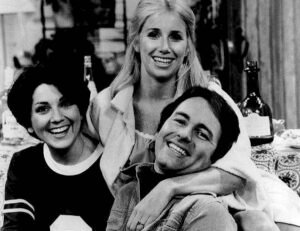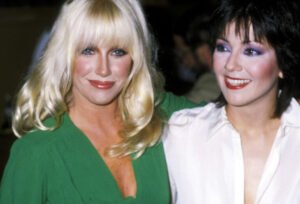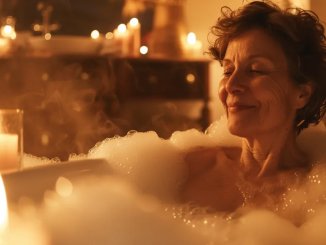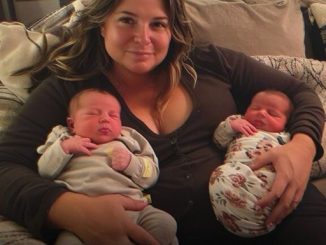
A lot of big, tragic and important things have happened to this wonderful country of ours since April 2014. None of which I have covered. I was too busy writing about hungover parenting, ancient philosophy and my dog Colin.
Out of the 536 columns I have written, 27 were about that guy. Far too few. He is such a good boy, he deserves an article a week.
Today is the end of an era for me, and whenever these final events pop up in our lives, we can’t help but think about the ultimate end.
Everything we do, we will one day do for the last time. That’s why you have to enjoy things while they are around. It’s not just big events like leaving a job, house or loved one either. Whatever moment you happen to be in now, you will never get it back, and you don’t know how many more you have.
Everything we do in life, from eating pizza to spending time with the people we love, to driving, writing, drinking or breathing, we will one day experience for the final time. It might happen tomorrow. This can be either a depressing or an inspiring thought, depending on how you look at it.
A few years back in this column, I interviewed professor of philosophy William B Irvine, of Wright State University, Ohio, on this very topic. He put it this way on a Zoom call: “Recognition of the impermanence of everything in life can invest the things we do with a significance and intensity that would otherwise be absent. The only way we can be truly alive is if we make it our business periodically to entertain thoughts of the end.”
Today’s column is very meaningful to me because it is my last. Like the last night with a lover before she goes overseas. And just like a lover, there have been some half-arsed efforts put in from me over the years. Last week, for example, I spent 750 words moaning about how bad my cricket team is. But the truth is that any of my columns could have been the final. If I had reminded myself every week for the past 10 years that the end is inevitable, I may have been more grateful for having a column and appreciated writing them all as much as I am this one.
While everything we do could have more meaning with a focus on finitude, some things are inherently more worthwhile than others. There is no doubt my column “The pros and cons of wearing Speedos” from November 2022 was less meaningful than most things in this world. That was a waste of everyone’s time. So, if we only have so much time, how do we pick the best things to do?
Well, Oliver Burkeman, the author of Four Thousand Weeks – Time Management For Mortals, suggested this to me in a 2022 column: “Ask yourself, does this choice enlarge me? You usually know on some unspoken level if it does. That’s a good way to distinguish between options.”
With that in mind, I don’t feel great about my 2018 article on “New Zealand’s best hole”. That didn’t enlarge anyone.
There will be people reading this column right now who have loved my writing in the Herald and are sad to see it end. Others will have hated it and are glad to see me go. Many won’t have any opinion at all. But for those in the first camp, I have good news. I have a book coming out on May 28 called A Life Less Punishing – 13 Ways To Love The Life You Got (Allen and Unwin Book Publishers). It’s a deep dive into the history, philosophy and science of not wasting our time lost in anger, loneliness, humiliation, stress, fear, boredom and all the other ways we find to not enjoy perfectly good lives. It’s available for pre-order right now (google it if you’re interested).
A Life Less Punishing took me two years to write and is equivalent in words to 100 of these columns. Which would be a complete nightmare for those in the hate camp, but as I say, great news for those who want more.
Anyway, thanks to the Herald for having me, thanks to the lovely people who make an effort to say nice things to me about my column nearly every day and thanks to the universe for every single second we get.
Bless!
Joyce DeWitt Finally Admits the Truth We All Suspected – You Won’t Believe What She Said
It’s been years since *Three’s Company* was on TV, but the laughs it brought us are still fresh in our minds.
With its memorable characters and hilarious mix-ups, this classic show changed the world of sitcoms forever. Now, Joyce DeWitt shares what truly made *Three’s Company* a show we’ll never forget…

From the funny adventures of three single roommates to the unforgettable acting of John Ritter and Suzanne Somers, *Three’s Company* is still a favorite on American TV. It’s hard to believe that 40 years have passed since the final episode aired on ABC, yet the show’s charm and humor continue to entertain us.
To show just how long it’s been, I recently watched the intro. The scenes at Santa Monica Pier remind me of how much has changed since the show was filmed.
Sadly, both John Ritter and Suzanne Somers have passed away, leaving us far too soon. But Joyce DeWitt, now 75, keeps the spirit of *Three’s Company* alive by sharing her stories and memories of the beloved show.
“The most dear, precious, tender – and utterly unexpected – experiences that have come from working in *Three’s Company* are the many, many adults who have told me that *Three’s Company* was a safe haven they could count on during their teen years – for some, the only safe haven,” Joyce DeWitt told *US Weekly*.

Playing Janet Wood alongside John Ritter and Suzanne Somers, Joyce DeWitt became a TV star and brought joy to millions of viewers.
She appeared in 171 episodes of *Three’s Company* from 1976 to 1984.
“It was such a gift. I mean, it was iconic. But who would have thought it?” Joyce DeWitt told *The Spec*. “All we wanted to do was make people laugh. When I think about it, the show was really like a modern version of a 16th-century comedy. It was all about crazy fun. We talked about serious issues sometimes, but that was always in the background.”
“John Ritter used to say, ‘We don’t want people to just laugh but to fall over their couch laughing,’” she added. “But in the end, it was about the deep friendship and love the characters had for each other. That’s what made people love them.”

After *Three’s Company* ended, Joyce DeWitt took a break from the spotlight for over ten years before returning to acting.
No matter what she has done or plans to do in the future, most people will always remember her for that iconic show. And according to DeWitt, there’s a simple reason for this.
“It was a ‘time out’ from the tough, stressful situations young people were dealing with in their lives,” DeWitt explains, adding:
“And, of course, they say the characters did silly, crazy things that made them laugh. But it was the love, trust, and support between the characters that made fans stay with the show for life.”

In unedited photos from the *Three’s Company* set, the close bond between the cast is clear, especially in the pictures of Joyce DeWitt and Suzanne Somers, who played the much-loved Chrissy Snow.
Both actresses gave memorable performances, portraying young women making their way in a male-dominated world. Their contributions were just as important to the show’s success as John Ritter’s, and in those early days, their smiles in the photos show a sense of friendship and teamwork.
But beneath the laughter, tensions were brewing. While Somers was praised for her role as “the dumbest blonde in America,” her push for equal pay led to growing conflicts. She demanded a 500% salary increase, from $30,000 to $150,000, which put a strain on her relationship with DeWitt. What was once a joyful set became a place of tension and disagreements.
Suzanne Somers always saw *Three’s Company* as a serious business and took her role as an actor very seriously, but she knew this approach bothered her co-stars.
Eventually, Somers was fired but still had to finish the fifth season under strange conditions. She was kept apart from the cast, filming her scenes through odd phone calls while escorted by security. The tension grew, leading to a painful break between Somers and Joyce DeWitt.
For over 30 years, they didn’t speak, a long silence that felt difficult to understand when you looked back at their early friendship on the show.
“They painted me as if I was trying to ruin the show,” Suzanne Somers said in 2020. “So, I never talked to anyone on that show ever again. Ever again.”
Some people thought that Joyce DeWitt’s rivalry played a role in Somers’ departure, but it was really the salary negotiations that caused the rift between them.
Their different situations made things more complicated — Somers was a single mother who needed financial security, while DeWitt was more focused on her acting. This added to the strain on their relationship.
“We had very different approaches to our careers,” Joyce DeWitt said about her relationship with Suzanne Somers after the show. “We had very different needs. I didn’t have a child to support on my own. I didn’t have a business mindset, so I didn’t understand someone who did.”
But in a wonderful turn of events, the two finally reunited in February 2012 on Somers’ talk show, *Breaking Through*. It was clear they had made peace.
The former co-stars shared a heartfelt hug, and their open conversation about the past showed signs of healing.
DeWitt expressed her deep admiration for Somers, saying, “You went up against ruthlessness, and it came down, but what you’ve gone on to do is immeasurable.” This touching moment highlighted the strength of their journey and the power of forgiveness. The two actresses remained friends until Somers’s sad passing in 2023.

In an interview with *US Weekly*, Joyce DeWitt spoke warmly about her late co-stars, honoring the lasting impact they made. Reflecting on Suzanne Somers, who passed away from breast cancer, DeWitt described her as “absolutely wonderful.”
She also paid tribute to John Ritter, who died in 2003 during heart surgery, calling him “a true gift.”
Looking back at the photos from *Three’s Company*, we are reminded of a different, happier time—one filled with laughter, friendship, and unforgettable memories. These images not only capture the joy the cast brought to TV screens but also highlight the lasting legacy they have left behind.



Leave a Reply